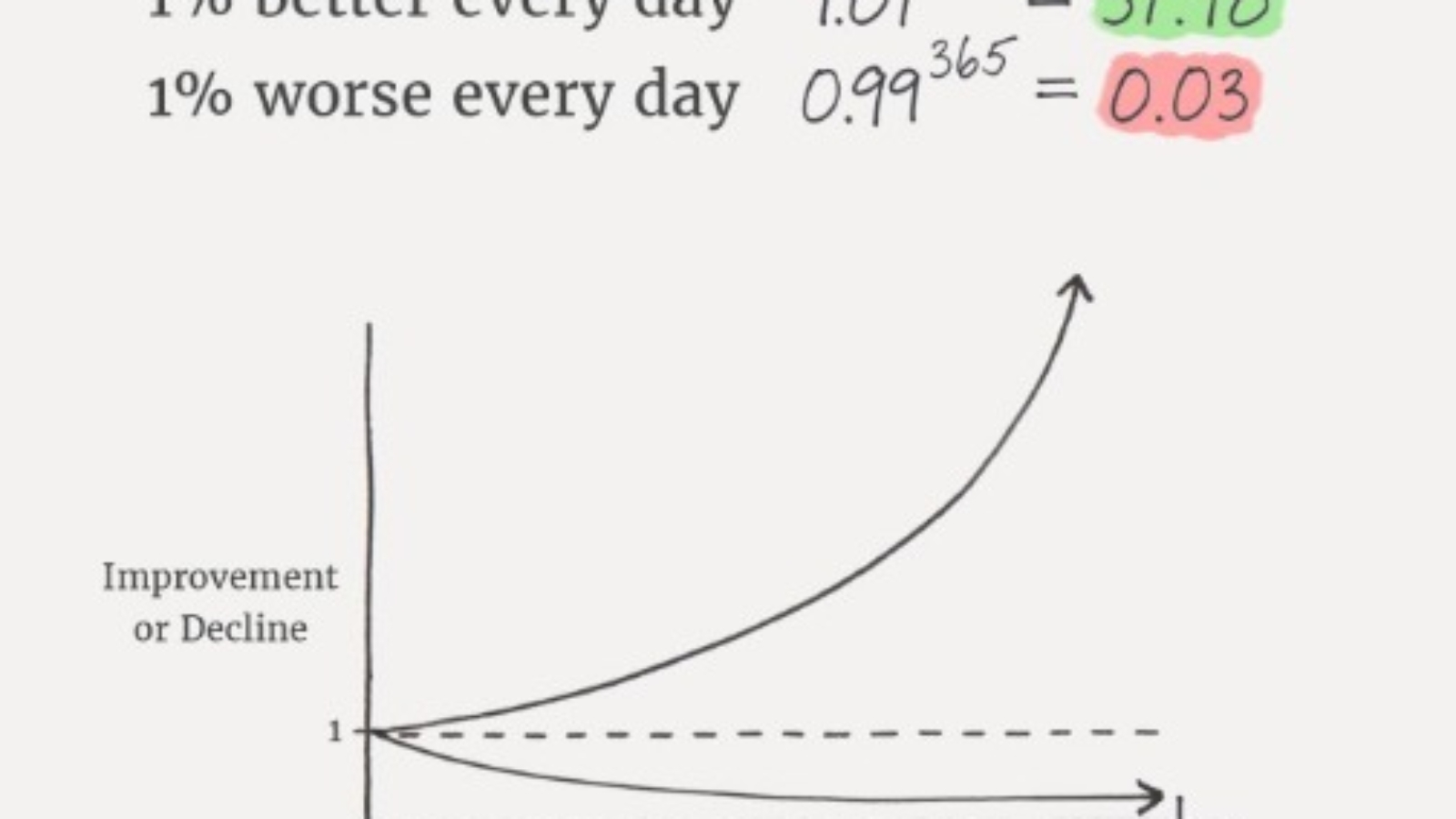This article takes a look at some key attributes of the legal ops person. This is based on my own experience either at the coal face, managing a team of people implementing legal tech, consulting on legal tech or from interactions I’ve had with people over the years. Hopefully this is useful for anyone breaking into the space, but also for those that are curious about what legal ops do/how they do it. So these are a few characteristics I thought of (but they are not limited to these of course!):
1. Empathy
It goes without saying that a lot of work has a problem element to it, be it one that is expressed by lawyers themselves or one that is determined on deeper analysis of legal processes. Dealing with people that have a ‘problem’ as it were clearly requires an ability to empathise, understand the problem and create a bond of trust that you will be able to solve it for them – time poor people in particular!
2. Continuous Improvement
The reason I like the power of tiny gains graph (attached as a picture) is that it reflects the benefit of continuous improvement in graphical form. As James Clear says on his site it isn’t just about improvements but the avoidance of tiny errors. Over time those learnings and improvements compound. In a legal ops context that would be keeping on top of latest developments, understanding what works and what doesn’t, understanding another piece of functionality of the tools you use. Continuous improvement is useful both personally (to continue to develop yourself), as well as for the business (to make sure it is always as efficient as it could be).
3. Solving problems innovatively
One of the key benefits of a legal ops person is their ability to solve problems for the business. Those solutions ultimately lead to quicker client service, greater profitability, mitigation of risk, etc. They have the ability to zoom out, take a birds-eye view of the issue, gather insights from users and data, use their knowledge of legal tech and their own tech stack, and utilise all that information to derive a solution. It could be very simple to solve – or it could be a long implementation of a tech tool – either way that solution has been built on a solid foundation of analysis.
4. No fear (of failure)
A key differentiator perhaps between legal innovators and lawyers could be their appetite for risk and failure. By the nature of the work they do lawyers are always striving for perfection e.g. drafting a contract that includes as many possible scenarios as possible with the minimum amount of risk for their clients and with no errors whatsoever. On the other hand, legal ops people tend to look at solutions in a more iterative way. While it may not be absolutely perfect in the first iteration, it can be continually refined to perfection taking into account how people use it and/or how the output is received. Legal ops people may also have more appetite for risk in creating new and innovative solutions that may or may not work.
5. Ability to persuade and market
These are more communications-based attributes but they have some key benefits depending on where you are in a particular implementation. It could the adoption of a particular tool – and the required internal ‘selling’ to make sure maximum value is derived from its use. Being able to persuade people who aren’t currently using it and turn them into happy internal users is worth its weight in gold. This could be increasing adoption from one team to other teams in the business by selling the benefits to them, or it could be persuading people that have “always done it this way” to do it the new way. The ability to market is also useful. In a business that may not understand what legal ops is being able to promote successes reflects obvious value to those internal people (and sometimes clients too). My view of legal ops is that it is an internal service, almost a consultancy in itself. Marketing successes gives people food for thought and (hopefully) sews the seed in someone’s mind about a particularly innovative use case they want to try out..
These were just five characteristics and attributes that I could think of. I’m sure there will be more that people come up with (and I’m more than happy to add to make this article more complete). If you think differently feel free to let me know – and if you’re using this article to understand more about the legal ops role you’re applying to then good luck!
Marc May
Founder and Managing Editor, The Legal Technologist
Head of Marketing, Document Drafter



